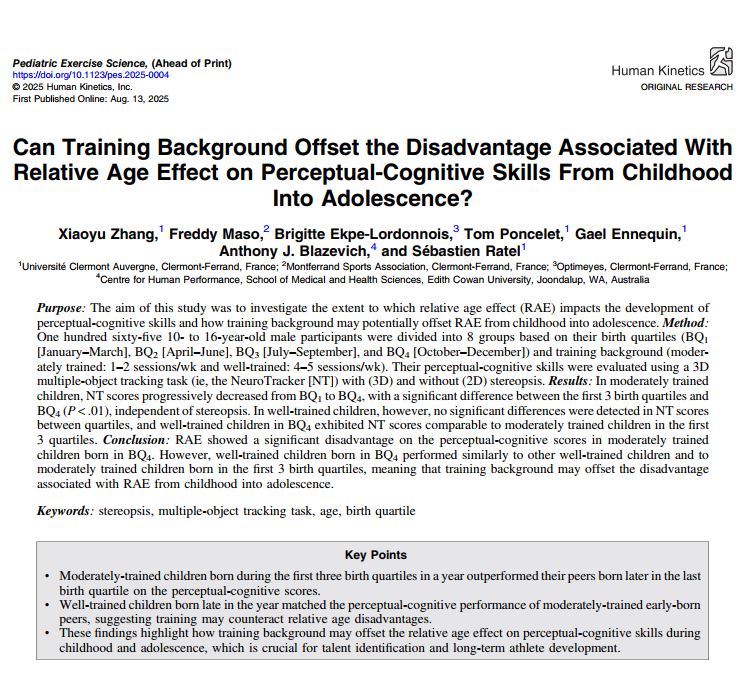Welcome to the Research and Strategy Services at in today's fast-paced.


The human brain and central nervous system are remarkable. How they interpret and deal with the world through sensory systems is a deep and fascinating arena of science. But what’s perhaps more fascinating is how subtle variations in brain function can dramatically influence human performance from one person to another. In 2009, a partnership between the Faubert Lab and the technology transfer company behind NeuroTracker spawned sports science collaborations with world-class teams across different sports.
I was very excited to work with elite athletes, who exist on the very boundaries of human performance. We all know that sports stars achieve incredible feats of skill and athleticism that seem beyond the reach of ordinary people. Most thinking on this focuses on their spectrum of physical abilities. However, as a neuroscientist, I always had the idea that the primary differentiator at the elite levels is not necessarily physical prowess.
Specifically, it could be their very high bandwidth to process complex and dynamic scenes that change rapidly and unpredictably. This allows sports stars to be in the right place at the right time, avoid errors, and crucially, make the best decisions to act on. There has been growing evidence in the field of sports science to support this.
However, it took several years of studying elite athletes from a neuroscience perspective to discover what makes them particularly special. Differences in what I term ‘perceptual-cognitive’ abilities, could have potent implications for determining any individual’s capacity to adapt to new levels of performance.
In a Nature Scientific Reports Study I compared 102 elite athletes from NHL, EPL, and French Top 14 Rugby League, with 173 elite amateurs from NCAA and a European Olympic training program, and also 33 non-athlete university students. All these participants performed a NeuroTracker training program comprising 15 sessions (6-8mins each), completed over several weeks.

Having hundreds of elite athletes in a single study was actually quite ground-breaking, making the NeuroTracker data tremendously useful from an analytical perspective. A meta-review of sports science research with elite athletes concluded that out of 1692 studies, this was the only one with an ideal sample size of athletes.
Although NeuroTracker is used to train-up high-level cognitive abilities for sports performance, the task itself a neutral and abstract one. This makes it valid for comparing different populations, because it’s essentially the same training for everyone, with no inherent biases or advantages
More importantly, although the task is challenging, it is technically very simple to attempt – you can try it for yourself here. This means that when you improve at it, you improve because your brain gets better at it, rather than from technique or practice related effects. This has been corroborated by qEEG measures of positive neurophysiological changes in the brain with training.
NeuroTracker data yields two types of measures of brain functions - baselines (existing perceptual-cognitive ability), and learning rate (ability to adapt cognitively). The results from the three groups showed that elite professional athletes had, on average, significantly higher baselines than both elite amateurs and university students.
Even though the task is purely cognitive, and despite the ‘dumb jock’ stereotype of athletes, it wasn’t a surprise that these athletes performed better than the university students. This is because the types of brain functions that NeuroTracker elicits are relevant to the mental skills athletes typically rely on at the highest levels of play.
In terms of the learning rate, the general expectation was that if professional elites started off at a much higher level, then the elite amateurs and university students would catch up during the training program. Most surprisingly, the reverse happened. In terms of the learning curves, the elite athletes accelerated away from the amateur athletes, who in turn accelerated away from the university students.

The data revealed something profound about elite athletes: they appear to have a superior perceptual-cognitive capacity to improve and adapt to a new and neutral task. What’s more, the level of this capacity correlates strongly with the level of sports ability, suggesting it is a useful predictor of cognitive ability and learning potential in any domain of human performance.
In the case of these elite athletes, you would expect that their brains are already close to the highest competitive level, having reached their maximum potential. However, what makes them special may be their ability to acquire new potential so much more rapidly and efficiently than other populations. This heightened neuroplasticity, shown through NeuroTracker learning rate, maybe a defining trait of top-level athletes.
I can envision this kind of profiling being valuable in diverse human performance domains, not just in sports. Firstly for recruitment purposes, with the potential to more predictably select leaders for rapid career development. Or for jobs that are cognitively demanding, such as air traffic control operators and elite military or law enforcement roles.
Secondly, as a measure of learning rate, it could be used to qualify individuals for specialized or costly training programs. This would allow resources to be focused on those with high cognitive adaptability, who can benefit from them the most. This knowledge of the adaptability of each individual’s brain is an emerging area of neuroscience, but it may well redefine the dichotomy of nature versus nurture, as well as our understanding of human performance.








Welcome to the Research and Strategy Services at in today's fast-paced.

An explanation of a structured habit-building framework for cognitive routines, emphasizing consistency, accountability, and long-term sustainability.

From stereo-3D to adaptive speed thresholds, get the lowdown on what makes NeuroTracker tick.

Check out our 101 on how NeuroTracker works under the hood.
.png)